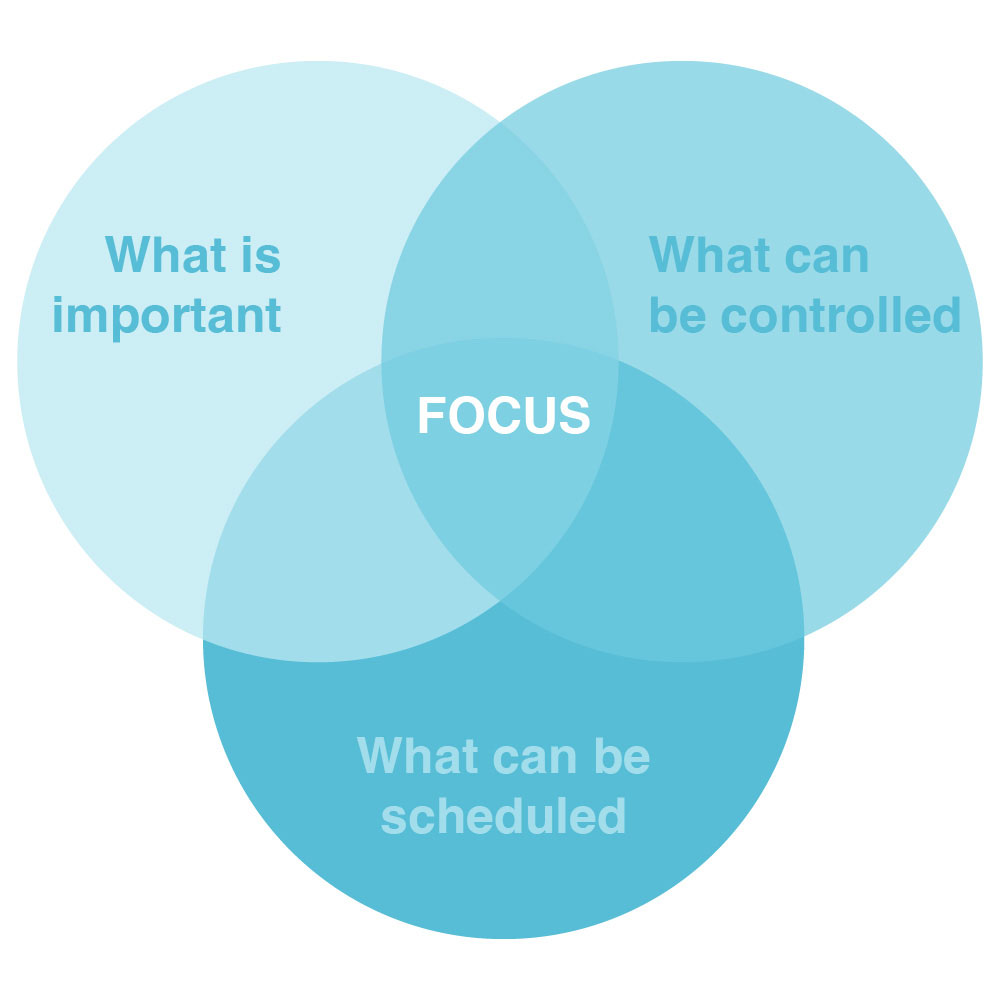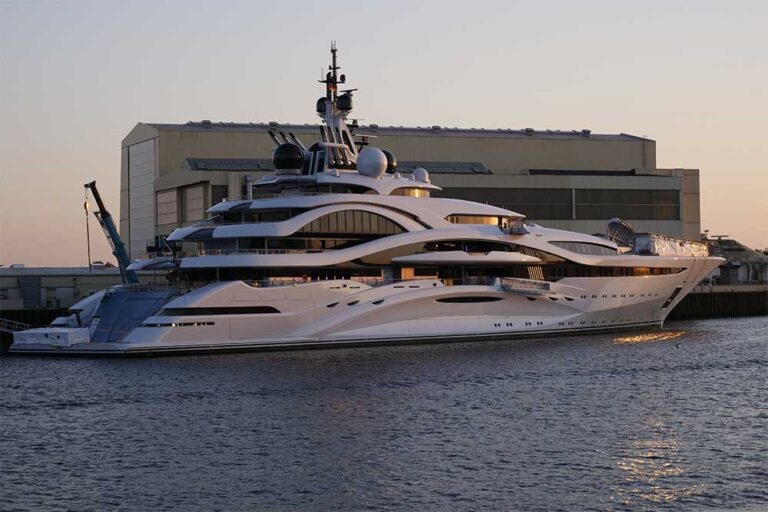Personal Growth and Financial Stability: Achieving both on Board

Ironically, a superyacht gives you both the best environment for personal growth and financial stability—and the worst.
When guests or the owners are on board, it’s a high-pressure, high performance place. One that leaves little space for you to think about yourself, your personal growth and your financial stability. The boat and your duties become all consuming. Shifts are intense and long, often including irregular hours, leaving you sapped of physical and mental energy at the end of the working day. Not only that, you have to get up and do it all again the next day.
There is a big plus side to this, though. You don’t need us to tell you that working on board a yacht is character building. It’s got personal (and professional) growth built right in. Every season you spend working in yachting automatically increases your experience and resilience. It’s a challenging industry, but if you gel with it, it will offer you plenty of room to become a more rounded person.
Not only that, you should succeed financially too. You’re earning well and, at least during the season, your opportunities for spending are limited. After all, you’re on board working hard and when you come off your shift, it’s not like you can often go out and spend money in restaurants and bars. You have to stay on board.
On top of which, your daily living expenses are virtually non-existent. Your accommodation, food and clothing are all covered. You don’t have to pay the yacht’s electricity, gas, water or heating bills. You may have access to a crew-only WiFi/internet account. So your outgoings are limited and you’re able to keep hold of most of your salary. Perhaps you aren’t even liable for income tax in your home country (or any tax jurisdiction, for that matter) because you spend most of your time out of the country and at sea.
So almost by default, your financial situation is pretty good. But that’s not the same as being financially stable. Being truly financially stable means you’re not dependent on the yacht for your financial stability. Never forget that you can lose your position on board at very short notice and for reasons outside your control. Genuine financial stability comes from being truly in control of your financial situation.
By the same token, achieving meaningful personal development means being in control of your development, rather than relying solely on the working environment on board the superyacht to guide you—because the yacht will guide you according to its needs, not yours.

Pay yourself first in time and money
So it’s safe to say, the yacht takes its daily toll. That’s OK. But don’t let it become an excuse to relinquish control of your life to the yacht. Instead, make this promise to yourself:
If I am willing to work 8, 10 or 12 hours a day making someone else’s dreams come true, I can afford to spend ¼ of an hour, ½ an hour or an hour making mine come true.
The trick is to remind yourself that small parcels of time make a huge difference when you add them all together. A popular concept in this regard is ‘one percent better’. Imagine if you could make your life one percent better every day. By the end of the year, it would be over 365% better. In fact, it would be a lot more.
You might think it can’t be more than 365% better, because most years only have 365 days. So 365 x 1% = 365%.
No.
After the first day, you have added 1%. But after Day 2, you are 1% better than Day 1 PLUS the 1% improvement you achieved on Day 1. So if Day 1 is 100, then after Day 1, you are at 101. And after Day 2, you have added 1% of 101, making the gains after Day 2 not 102, but 102.01. Doesn’t look like much, does it? But do this for 365 days and you end up with 3,778.43, not 365.
Shocked?
This is the same principle as compound interest—the powerplant that drives your financial investments.
The point being, though, that small incremental gains really do make a massive difference over time. So remind yourself that it’s up to you to carve out this short spell of time for yourself each day.
It doesn’t have to be at the end of your shift, when you’re tired. There is nothing to stop you from doing work for yourself before you go on shift, when you are fresh. If you’re going to work an hour for yourself and 12 for the boat, why not put your hour (or ½ hour) first?
Anyone who has strayed within 10 yards of YFSOL will have heard us talk about paying yourself first. That means putting money into your savings and investments at the beginning of the month, when your salary first lands in your account. Not at the end of the month, when you tell yourself you’ll save or invest whatever’s left.
You’d be astonished at how many superyacht crew spend all of their money by the end of the month. They’ve paid barkeepers, restaurateurs, jewellers, electronics manufacturers, fashion brands, you name it. So when it comes time to pay something into their own pockets (savings and investments), all their money is gone.
The same goes for your physical and mental energy. By the end of your shift, there may not be a whole lot left (if any at all) for you to spend on making your dreams come true.

The 3 keys to personal and financial growth
Once you’ve decided that you’re going to pay yourself first, both in your personal and financial life, you need to figure out what your goals are. In some regards, that’s simple. What matters to you in the medium to long term? What does a meaningful life look like for you? It’s unlikely that it involves looking after the needs and whims of the ultra-wealthy.
Your life goals will be deeply personal to you. And they need to be. The only way you will truly grow and be successful is if you follow your priorities and dreams, rather than chasing someone else’s.
That’s the first key: focus intently on your priorities and what matters to you in the short segment of time that you set aside for yourself each day on board the yacht. Don’t let this time be hijacked by the needs and priorities of others.
Of course, that’s easier said than done when you’re surrounded by fellow crew and guests. So to increase your chances of success, do as much of the ground work as possible in the off seasons or when you are on leave. During these periods, you’ll be able to do the work that requires more time and concentration than you might have on board during the Mediterranean or Caribbean seasons.
Do your research and planning away from the boat. And draw up a schedule of small individual tasks that you can accomplish on board easily in 15 to 30 minutes. Once you’re back on the superyacht, you can dedicate yourself to achieving these small milestones each day.
For example, creating an effective financial plan requires time and thought. But once it’s in place, and you have automated the ‘Pay Yourself First’ aspect of it (regular monthly direct debit contributions), it only needs occasional attention. And working together with a financial planner only makes creating and managing the plan easier. They can guide you and will also monitor the performance of your financial plan and the investments driving it. Yachting Financial Solutions can help you with this.
Contrast this with trying to run your own investments from the boat on an ad hoc basis. We often see people in the industry saying that yacht crew should do their own investment management. But creating and keeping on top of a financial plan and the associated investments during the long, intense Mediterranean season isn’t maybe the wisest thing to try to do if you know you’re going to be flat out every day.
Instead, let experts do the work for you, while you concentrate on the work you’re an expert in: being superyacht crew.
Dealing with things outside your control
Unfortunately, you won’t be able to achieve all your dreams in life. Not because of any shortcomings on your part, but because you can’t control everything that is needed to reach your goals. External forces are always affecting your life. Sometimes they help bring you closer to your goals; other times further away.
A few years ago, we met Anric Blatt, a coach for fund managers and others in the financial service sector. He showed us a terrific Venn diagram that we think is a great guide to help you deal with things outside your control. It’s very simple. But, as with all very simple things, they aren’t always obvious.
This is it:

Here’s how you deal with things outside your control: ignore them. You can’t control them, so don’t waste time and energy trying to. Instead focus only on the things you can control. That’s the second key to your financial and personal growth.
Example: when it comes to investing, you can’t control how well a particular fund or stock performs. It does what it does. Hopefully, it will go up in value. But you won’t have any say in the matter. However, what you can control is how well your investment portfolio is diversified. The more diversified it is, the less impact the behaviour of a particular stock will have.
You can go one step further. Investing in a fund of funds. This is a collection of funds that each invest in a collection of assets, is a great way to diversify your portfolio in one go. Again (plug coming up), we are able to help you gain access to some of the most well-run funds of funds at a monthly investment level far below what is normally required to invest in them.
Focus on what you can schedule
Looking at Anric’s Venn diagram again, you can see there is a third key to success: scheduling. And this is where we come back to managing your time on board. There is no point focusing on what matters to you along with what you can control if you aren’t able to make time available to do anything.
As we said before, schedule the big jobs for when you are able to dedicate enough time and resources to them. For instance, during the quieter spells of the year or when you are on leave. And schedule the smaller jobs for when you are on board the yacht and are able to fit them into your daily routine.
To help you decide what to schedule for when you are on board the boat, consider using the Pareto principle. According to the Pareto principle, 80% of your success (consequences) will come from 20% of your effort (causes). Figure out those actions that bring you the most success and concentrate on those while you are on board. Already, you’ll be working a lot more efficiently towards your goals in the limited time you have each day to do so.
Be kind to yourself & pace yourself
Finally, words of caution. It’s easy to burn out on board superyachts. They aren’t the easiest workplaces. And it’s also easy to burn out on your daily scheduled activity for yourself.
So pace yourself. Doing one small thing for financial and personal growth every day will be far more beneficial to you than trying to take big strides on a weekly or monthly basis. Baby steps are easier to sustain and will (eventually) get you to where you want to go.
And if you miss a day’s scheduled activity because you were exhausted after your shift (or because you got called on duty earlier than usual for some reason), don’t fret. The good thing about small steps is that missing one or two really doesn’t put you back too much. Just don’t miss a whole heap and get into the habit of skipping working on your financial and personal growth.
Remember: if you don’t work on your personal and financial growth, you won’t grow.
And this bears repeating:
If you are willing to work 8, 10 or 12 hours a day making someone else’s dreams come true, you can afford to spend ¼ of an hour, ½ an hour or an hour making yours come true.
The second word of caution concerns your crewmates. While you may get on well with them, some will even become life-long friends, never forget that their priorities aren’t your priorities. Peer pressure and the behaviour you see around you won’t necessarily align with your medium- to long-term goals. Spending lots of money on expensive Champagne or luxury goods won’t benefit your financial and personal growth as much as sticking to your plans and your priorities will. That’s why paying yourself first is such a powerful concept. If you do that, you’ll always be on track towards your ideal dream life after yachting.






